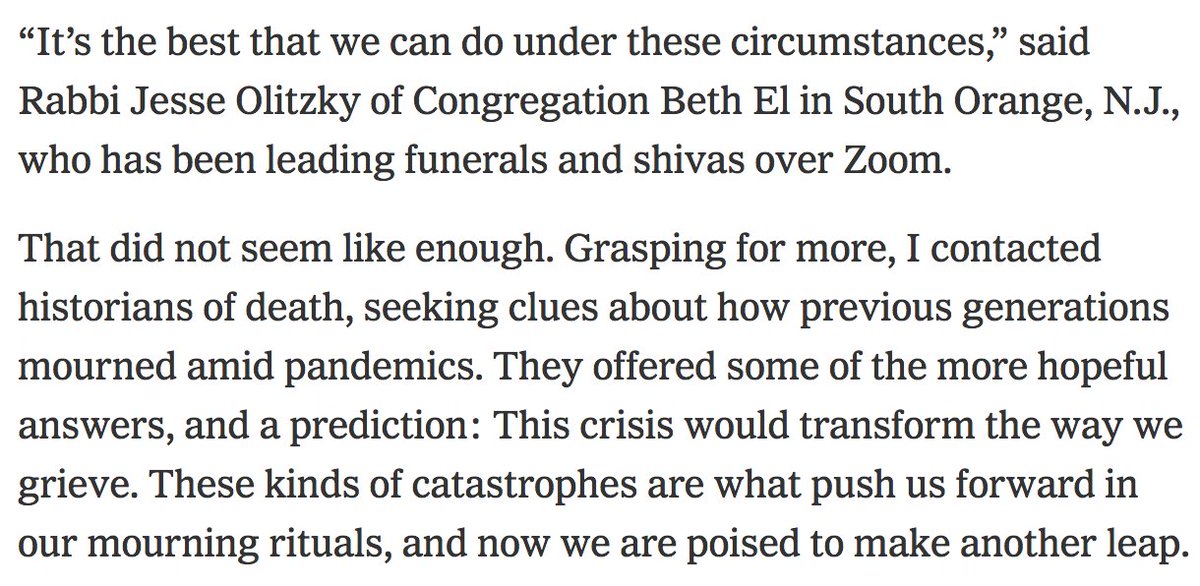A thread from a historian& #39;s desk that& #39;s perpetually strewn with accounts of the massed missing and mourned from 80 years ago https://www.nytimes.com/2020/04/05/us/coronavirus-dilemmas-mourning.html">https://www.nytimes.com/2020/04/0...
There& #39;s useful stuff here. This is a historian& #39;s gimme. But I& #39;ve learned something else: from the records, from the work of magnificent students and colleagues, from being a mourner.
1) if a funeral is never one thing, it is also never one act. faced with massive uncertainty, the missing, the incomplete, people do many things, do things again and again, try different things. It goes on a long, LONG time.
The first thing we need to lose, then, is our current society& #39;s obsession with "closure." It& #39;s unhelpful.
Plus, during times of upheaval and uncertainty mourning and justice-seeking are difficult to unpick and separate. How will it be possible to call time on the former when it is intertwined with the latter?
2) People now, however -- as were people in other times of displacement, separation, and upheaval -- are traumatized at the thought of loved ones dying alone, without care, or without friends or family.
That& #39;s why mourning will be a long and difficult process for many. But what I do know as a historian and a student of end-of-life processes as well as having seen some up close, is that our current medical system does a lot of that care unheralded.
Wealthy societies have of late emphasized improving end-of-life choices, with explicit or implicit criticism of the medical mainstream. I understand. But that mainstream also includes so many nurses, PAs, and others who do the minute-by-minute work of caring for the dying.
I am both sustained by knowing of their presence now, and worry about the kind of strain they are under. This is something we truly depend on as well.

 Read on Twitter
Read on Twitter


